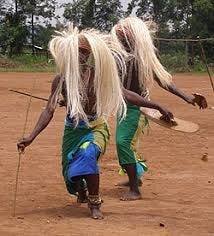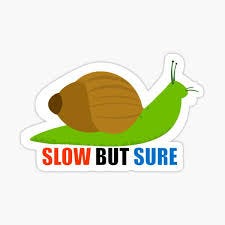Our Languages
“Yes — English may shape our image, but our mother tongues tell our truth.” — Agaba Witness, founder Enjoy it Vernacular.
At **Enjoy it Vernacular**, we centre languages that speak to land, lineage, and identity. These are the voices often pushed to the margins — languages vibrant in homes and marketplaces, yet rarely seen in literature, digital media, or global publishing. We begin with a focus on East Africa, and especially Uganda, where orality has preserved beauty that paper has not always held.
Our platform welcomes original writing, translation, and re-imagination in these languages, with the goal of nurturing pride, preservation, and innovation.
---
🐄 Runyankore–Rukiga (Runyakitara)
Spoken across southwestern Uganda, **Runyankore–Rukiga** is often grouped under the broader umbrella of **Runyakitara** — a constructed linguistic standard meant to unify several closely related Bantu dialects, including Runyoro and Rutooro. These languages are deeply rooted in the pastoralist cultures of Ankole and Kigezi, carrying centuries of ecological knowledge, philosophical proverbs, and complex clan systems.
Though they live strongly in oral expression, especially in storytelling and community dialogue, Runyankore and Rukiga are rarely seen in creative writing beyond folktales or religious texts. We aim to make space for these languages in speculative fiction, poetry, personal essays, and experimental writing — giving form to voices both ancestral and contemporary.
---
🌍 Swahili (Kiswahili)
As one of the most widely spoken languages in Africa, **Swahili** crosses borders with ease. With deep roots in East Africa’s coastal regions and rich infusions from Arabic, Persian, German, and Portuguese, it is a symbol of cultural convergence and shared identity. Today, it is spoken in countries including Kenya, Tanzania, Uganda, Rwanda, Burundi, Mozambique, and the DRC — and is recognized by the African Union as a working language.
Despite its reach, Swahili's presence in African literature often remains overshadowed by colonial languages. Much of its global cultural export is tied to music, diplomacy, or nationalist history — not always to the experimental, everyday, or deeply personal. *Enjoy it Vernacular* seeks to platform creative writing that stretches the expressive capacity of Swahili — reclaiming its rhythm, pride, and artistic depth through short fiction, speculative work, modern poetry, and youth voices.
🎶 Luganda
**Luganda**, spoken by the Baganda people of central Uganda, is the most widely used indigenous language in the country. With over 8 million speakers, it is both a cultural and functional language, used in homes, radio, schools, and even parliaments. Its melodic tone and precise grammar make it well suited for music, orature, and ceremony.
However, despite its popularity, Luganda remains underutilized in contemporary literary publishing. Much of the written work is religious or educational, with few platforms showcasing experimental, intergenerational, or modern urban writing. Through *Enjoy it Vernacular*, we offer a home for the imaginative and emotional registers of Luganda — where traditional storytelling meets digital-age expression, and where everyday language can become literature.
---
🐝 Kinyarwanda
**Kinyarwanda** is the national language of Rwanda and is also spoken in parts of southwestern Uganda and eastern DRC. It is mutually intelligible with Kirundi and is part of the larger Rwanda-Rundi dialect continuum. Kinyarwanda is known for its musical tonality, complex verb structures, and deep cultural symbolism.
In Rwanda, the language is central to education, governance, and daily life. However, like many African languages, its literary range is still developing. In Uganda and elsewhere, Kinyarwanda speakers often find themselves linguistically invisible. At *Enjoy it Vernacular*, we see Kinyarwanda as a bridge language — one that carries both ancestral weight and regional potential. We seek writing that explores identity, migration, and healing through this rich and resonant tongue.
---
🔭 Looking Ahead: More Languages, More Voices
This is just the beginning. As *Enjoy it Vernacular* grows, we are committed to welcoming languages from all across East Africa — especially those with strong oral traditions, limited publishing ecosystems, or untapped literary potential.
Languages we plan to include soon:
Uganda & Border Regions:
Lusoga – Musical and poetic, spoken in eastern Uganda.
Acholi – A Nilotic language from northern Uganda, steeped in epic oral poetry.
Lugwere – Dynamic and underdocumented; spoken by the Bagwere people.
Ateso – Spoken in Uganda and Kenya, rich in pastoral metaphor and song.
Alur – Expressive and cross-border, found in Uganda and the DRC.
Pokot, Samburu, Turkana – Maa and Nilotic languages of resilience and land.
Lukonzo – The lyrical tongue of the Bakonzo, linked to Rwenzori spirituality.
Runyoro–Rutooro – Languages of Bunyoro and Tooro kingdoms; philosophical and regal.
Democratic Republic of Congo (DRC):
Lingala – A major urban language in music and storytelling across Kinshasa and eastern DRC.
Tshiluba – Rich in spiritual, social, and political oral traditions in central DRC.
Kikongo – A transnational Bantu language with deep roots in Congo Basin cosmology.
Kiluba – An artistic, expressive Bantu language still underrepresented in writing.
Tanzania:
Zaramo – A coastal language with unique Swahili influence, now endangered.
Chaga (Kichagga) – Spoken on the slopes of Mount Kilimanjaro; rich in heritage and rhythm.
Makonde – Known for its musical tonality and woodcarving vocabulary.
Ngoni, Hehe, Nyamwezi– Languages of central and southern Tanzania with epic storytelling traditions.
Digo – A coastal language that bridges Kenya and Tanzania.
Ethiopia:
Amharic – A Semitic language of global literary weight, yet needing more experimental publishing.
Oromo (Afaan Oromoo) – Widely spoken, yet historically suppressed; a powerful literary force.
Tigrinya– Spoken in Ethiopia and Eritrea, poetic and politically resilient.
Sidamo, Wolaytta, Gurage – Cushitic and Omotic languages with hidden narrative treasures.
South Sudan:
Dinka (Thuɔŋjäŋ) – A tonal Nilotic language central to oral poetry, cattle culture, and identity.
Nuer – Philosophical, metaphor-rich, and vital for intergenerational memory.
Bari, Lotuko, Toposa – Languages of South Sudan’s mountain and river communities, full of untold stories.
---
These languages carry knowledge systems, oral history, humor, resistance, and beauty. They deserve space on the page and online — in fiction, poetry, memoir, and beyond.
We are actively seeking collaborators, translators, and contributors from these linguistic communities.
📬 Interested in contributing in one of these languages? [Read our current Call for Submissions]
🌍 Want to help shape our multilingual future? Email: enjoyitvernacular.magazine@gmail.com








